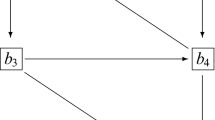Abstract
One version of Moore’s Paradox is the challenge to account for the absurdity of beliefs purportedly expressed by someone who asserts sentences of the form ‘p & I do not believe that p’ (‘Moorean sentences’). The absurdity of these beliefs is philosophically puzzling, given that Moorean sentences (i) are contingent and often true; and (ii) express contents that are unproblematic when presented in the third-person. In this paper I critically examine the most popular proposed solution to these two puzzles, according to which Moorean beliefs are absurd because Moorean sentences are instances of pragmatic paradox; that is to say, the propositions they express are necessarily false-when-believed. My conclusion is that while a Moorean belief is a pragmatic paradox, it is not just another pragmatic paradox, because this diagnosis does not explain all the puzzling features of Moorean beliefs. In particularly, while this analysis is plausible in relation to the puzzle posed by characteristic (i) of Moorean sentences, I argue that it fails to account for (ii). I do so in the course of an attempt to formulate the definition of a pragmatic paradox in more precise formal terms, in order to see whether the definition is satisfied by Moorean sentences, but not by their third-person transpositions. For only an account which can do so could address (ii) adequately. After rejecting a number of attempted formalizations, I arrive at a definition which delivers the right results. The problem with this definition, however, is that it has to be couched in first-person terms, making an essential use of ‘I’. Thus the problem of accounting for first-/third-person asymmetry recurs at a higher order, which shows that the Pragmatic Paradox Resolution fails to identify the source of such asymmetry highlighted by Moore’s Paradox.
Similar content being viewed by others
References
Baldwin T. (1990) G. E Moore. Routledge, London
Braun D. (2002) Cognitive significance, attitude ascriptions, and ways of believing propositions. Philosophical Studies 108: 65–81. doi:10.1023/A:1015760114297
Castañeda H.N. (1966) He*, a study in the logic of self-consciousness. Ratio 8: 130–157
Castañeda H.N. (1968) On the logic of attributions of self-knowledge to others. The Journal of Philosophy 65: 439–456. doi:10.2307/2024296
Clark R. (1994) Pragmatic paradox and rationality. Canadian Journal of Philosophy 24: 229–242
Cohen L.J. (1950) Mr. O’Connor’s “pragmatic paradoxes”. Mind 59: 85–87. doi:10.1093/mind/LIX.233.85
Collins J. (2003) Expressions, sentences, propositions. Erkenntnis 59: 233–262
De Almeida C. (2001) What Moore’s Paradox is about. Philosophy and Phenomenological Research 62: 33–58
Deutscher M. (1967) Bonney on saying and disbelieving. Analysis 27: 184–186. doi:10.2307/3326986
Green M.S. (2007). Moorean absurdity and showing what’s within. In: Green M.S., Williams J.N. (eds). Moore’s Paradox: New essays on belief, rationality, and the first person. Clarendon Press, Oxford
Green M.S., Williams J.N. (2007) Introduction. In: Green M.S., Williams J.N. (eds) Moore’s Paradox: New essays on belief, rationality, and the first person. Clarendon Press, Oxford
Heal J. (1994) Moore’s Paradox: A Wittgensteinian approach. Mind 103: 5–24. doi:10.1093/mind/103.409.5
Jacquette D. (2000) Identity, intensionality, and Moore’s Paradox. Synthese 123: 279–292. doi:10.1023/A:1005234102606
Jones O.R. (1991) Moore’s Paradox, assertion and knowledge. Analysis 51: 182–186. doi:10.2307/3328752
Kaplan D. (1978) Dthat. In: Cole P. (eds) Syntax and semantics, Vol. 9: Pragmatics. Academic Press, New York
Kaplan D. (1979) On the logic of demonstratives. Journal of Philosophical Logic 8: 91–98
Martinich A.P. (1980) Conversational maxims and some philosophical problems. The Philosophical Quarterly 30: 215–228. doi:10.2307/2219243
The Merriam-Webster’s Collegiate Dictionary. (1983). 9th ed. Springfield, MA: Merriam-Webster.
Moore G.E. (1993) Moore’s Paradox. In: Baldwin T. (eds) Selected writings. Routledge, London
Nagel, T. (1971). The absurd. Journal of Philosophy, 68, 716–727 (Reprinted in Mortal questions, by T.Nagel, 1979, Cambridge: Cambridge University Press).
O’Connor D.J. (1948) Pragmatic paradoxes. Mind 57: 358–359. doi:10.1093/mind/LVII.227.358
Perry, J. (1979). The problem of the essential indexical. Noûs, 13, 3–21 (Reprinted in The problem of the essential indexical and other essays, by J. Perry, 2000 (Expanded Edition). Stanford: CSLI Publications).
Perry, J. (1998). Myself and I. In M. Stamm (Ed.), Philosophie in Synthetisher Absicht (pp. 83–103). Stuttgart: Klett-Cotta (Reprinted in The problem of the essential indexical and other essays, by J. Perry, 2000 (Expanded Edition). Stanford: CSLI Publications).
Priest, G. (2004). Dialetheism. In N. Z. Edward (Ed.), The Stanford encyclopedia of philosophy (Summer 2004 Edition). Retrieved September 15, 2007 from http://plato.stanford.edu/archives/sum2004/entries/dialetheism/.
Sainsbury R.M. (1995) Paradoxes (2nd eds). Cambridge University Press, Cambridge
Shoemaker S. (1996) Moore’s Paradox and self-knowledge. In: Shoemaker S. (eds) The first-person perspectives and other essays. Cambridge University Press, Cambridge
Sorensen R.A. (1988) Blindspots. Clarendon Press, Oxford
Van Fraassen B. (1995) Belief and the problem of Ulysses and the Sirens. Philosophical Studies 77: 7–37. doi:10.1007/BF00996309
Welbourne M. (1992) More on Moore. Analysis 52: 237–241. doi:10.2307/3328342
Williams J.N. (1979) Moore’s Paradox: One or two?. Analysis 39: 141–142. doi:10.2307/3327254
Williams J.N. (1994) Moorean absurdity and the intentional ‘structure’ of assertion. Analysis 54: 160–166. doi:10.2307/3328665
Williams J.N. (1996) Moorean absurdities and the nature of assertion. Australasian Journal of Philosophy 74: 135–149. doi:10.1080/00048409612347111
Williams J.N. (1998) Wittgensteinian accounts of Moorean absurdity. Philosophical Studies 92: 283–306. doi:10.1023/A:1004260008644
Williams J.N. (2006) Wittgenstein, Moorean absurdity and its disappearance from speech. Synthese 149: 225–254. doi:10.1007/s11229-004-6252-0
Williamson T. (2000) Knowledge and its limits. Oxford University Press, Oxford
Wittgenstein L. (1967) Philosophical investigations (3rd ed., Original Publication 1953). Blackwell, Oxford
Author information
Authors and Affiliations
Corresponding author
Rights and permissions
About this article
Cite this article
Chan, T. Moore’s Paradox is not just another pragmatic paradox. Synthese 173, 211–229 (2010). https://doi.org/10.1007/s11229-008-9403-x
Received:
Accepted:
Published:
Issue Date:
DOI: https://doi.org/10.1007/s11229-008-9403-x




